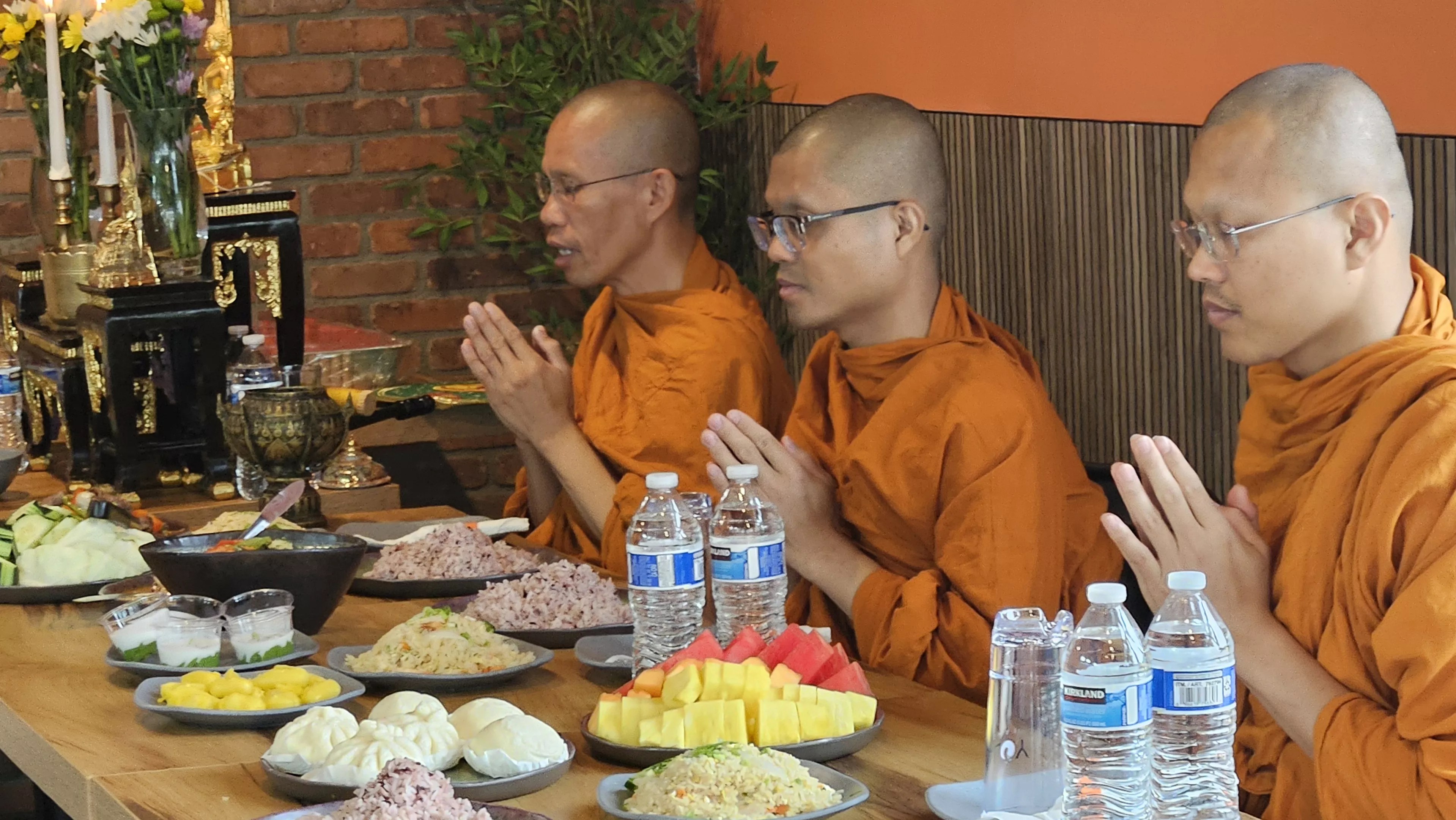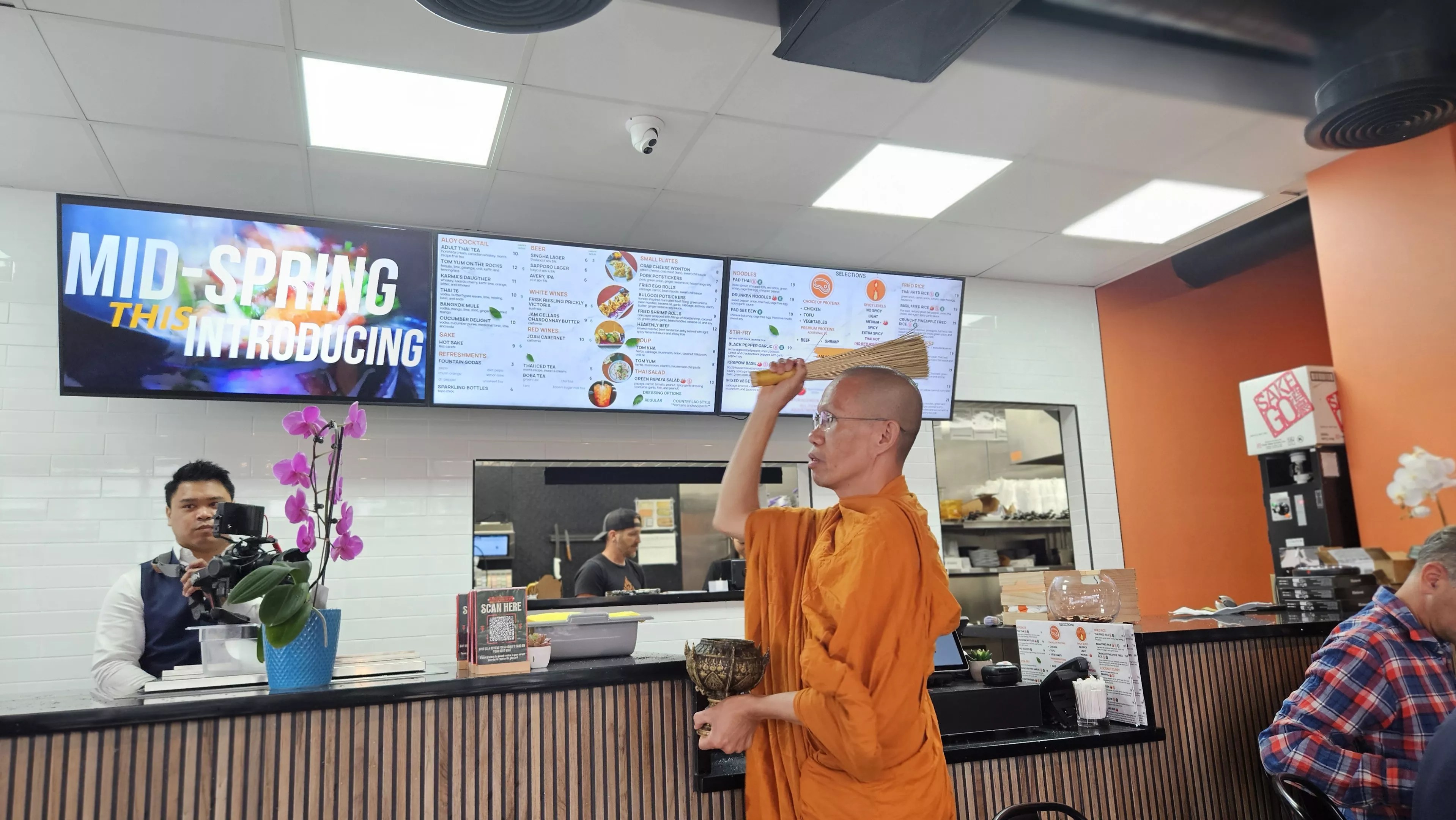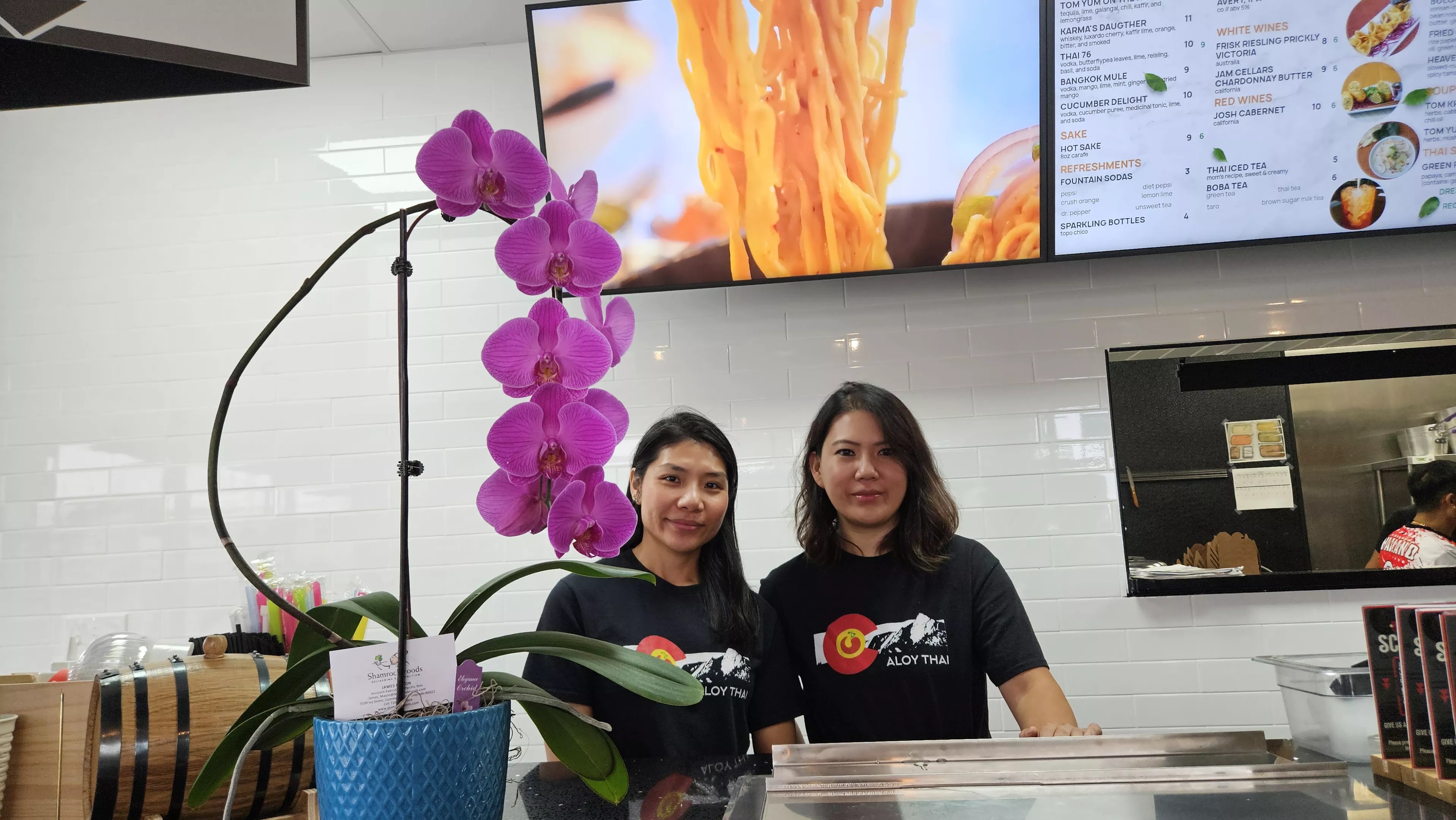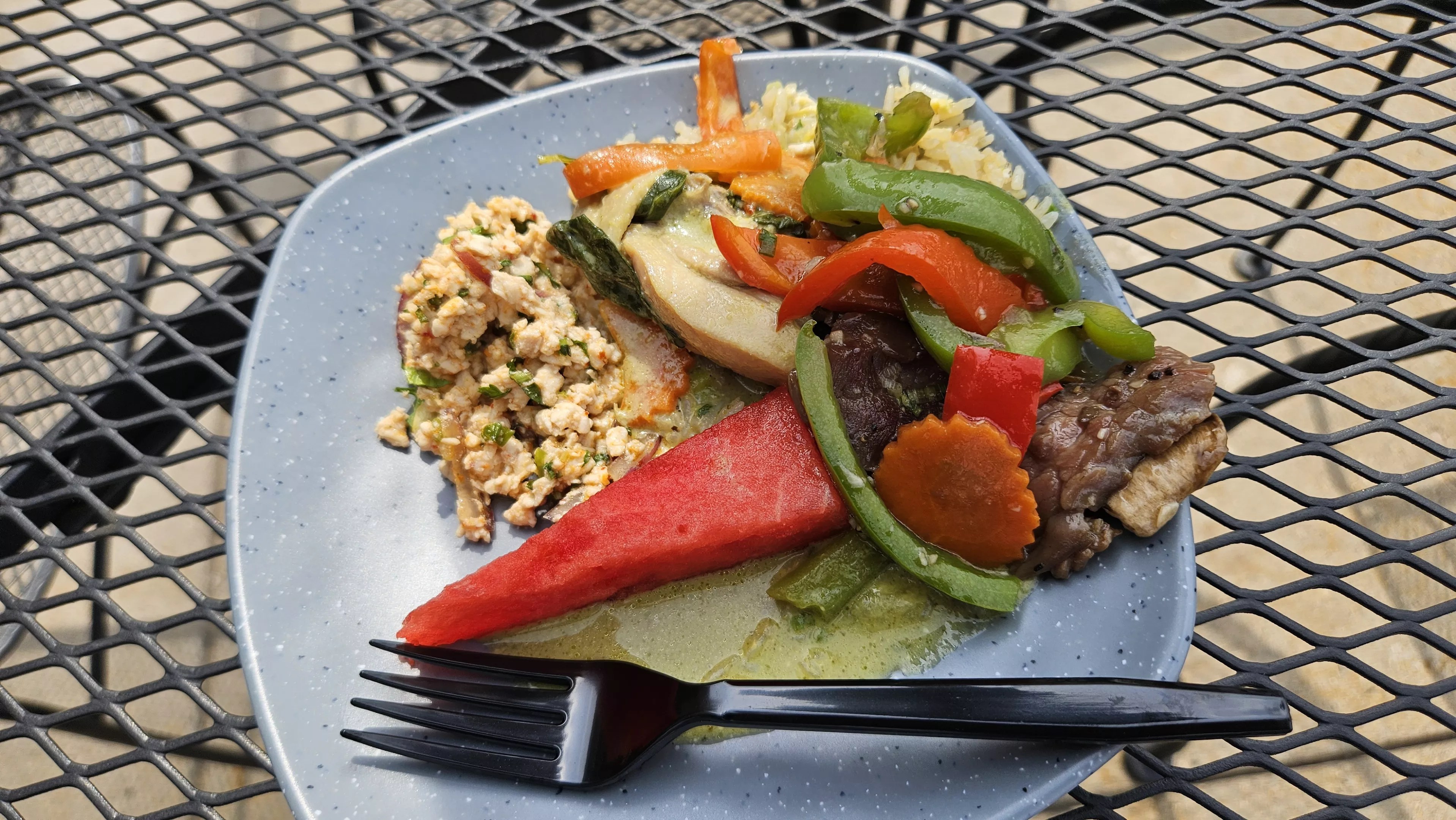
Gil Asakawa

Audio By Carbonatix
Hungry people heading into the new Cherry Hill location of Aloy Thai Eatery for lunch on August 25 encountered an unusual sight: In the back corner of the restaurant, which had opened its doors just a few days earlier, was a group of men with shaved heads wearing orange robes, seated and chanting over a feast of food placed before them. They were Buddhist monks, there to conduct an official opening blessing for Aloy Thai’s fourth location.
Thai community members responded by chanting along, their hands in prayer and heads bowed. They continued praying until one monk dipped a large brush into a bowl of water and sprayed it at the men across from him, blessing them.
Then he stood and walked through the restaurant, spraying water a customers and the restaurant’s staff behind the counter. He also walked into the restrooms to bless them, before rejoining the other monks for the close of the ceremony.

Aloy Thai’s fourth location in Cherry Hills Village is now open.
Gil Asakawa
The ritual is a Thai tradition, explains Arisa Bode, co-owner of Aloy Thai. “We’re Buddhists, and believe that when you get into a new place, you kind of want to clean it, and put the best spirit in it. Just start new. We are new people and taking over and bringing our good spirit in, and don’t try to make things bad for the customer. We want to give the highest quality service, and we want to make sure that we give all our spirit within us.”
Aloy Thai has given customers that spirit for two decades.
The family-owned chain was launched in 2006 with a popular spot in a Boulder strip mall, just off the 28th Street main drag; it was featured on Food Network’s Diner, Drive-Ins and Dives in 2017 and earned raves from host Guy Fieri. The second Aloy Thai opened in Denver, on Larimer Street; like the first, it was a sit-down, full-service restaurant serving authentic Thai dishes. The third spot member of the Aloy Thai family opened in Capitol Hill, and was more of a fast-casual spot.
So is this latest Aloy Thai. It’s a place where diners can sit and enjoy a meal, but can just as easily order and take out, or have food delivered.

Buddhist monks splashing water to bless the opening of Aloy Thai’s Cherry Hills Village location.
Gil Asakawa
“We’ll tend to go to these concepts in the future, because after COVID, people want to grab and go and pick up. And people got used to deliveries,” says Bode.
“So this is the fourth one and the third one is the same concept, because dining in became not even 40 percent of what it used to be,” she says of the numbers that guided the family’s decisions. Dining in used to reflect 60 percent of the business, but ever since the pandemic and the rise of delivery services, along with an explosion of competitors in Boulder, the mix of customers has changed. The family is willing to evolve, too, she adds.

Regiional Manager Mui Fisher and co-owner Arisa Bode of Aloy Thai Eatery.
Gil Asakawa
“It’s been a long ride for me, because I moved here when I was twenty, just finished college,” Bode, who’s now in her early forties. “And my mom just like called me, and said, ‘Help me with the business.'” So she quit her post-college job and went to work in Boulder; she’s been with the family business ever since.
Bode is proud of her family’s commitment to serving traditional Thai dishes with fresh ingredients. “We try to make it authentic as possible,” she says. “We even import things from Thailand, the highest quality of the food. But if I say it’s super authentic compared to Thailand? There are herbs we don’t have and we cannot get that we have in Thailand in some dishes, but we try to make it with what’s available here.”
That’s the challenge about food here that reflects international communities: Immigrants must adapt the cuisine to wherever they are, whether it’s in Europe or North America, and use what’s available.

A sampling of Aloy Thai’s menu.
Gil Asakawa
Thai cuisine has been around in the west, and in Denver, longer than some other Asian foods, such as Vietnamese. In fact, the oldest known Thai restaurant, Chada Thai Cafe, was opened in Denver in 1962. Because Thai restaurants have been around longer, many Americans are familiar with Pad Thai, the noodle dish. But Bode says she finds Pad Thai to be too sweet (a common adjustment for many cuisines to be popularized for American palates). She prefers Khao Soi, a Thai curry with egg noodles, slow cooked chicken, red onion, green onion, and homemade Northern Thai turmeric paste, topped with crunchy fried noodles.
Luckily, she can have Khao Soi any time at any of Aloy Thai’s locations.
Aloy Thai’s new Cherry Hills Village location is at 1400 East Hampden Avenue, Suite 100, Englewood, and is open daily from 11 a.m. to 9 p.m. Find out more at aloythai.com.